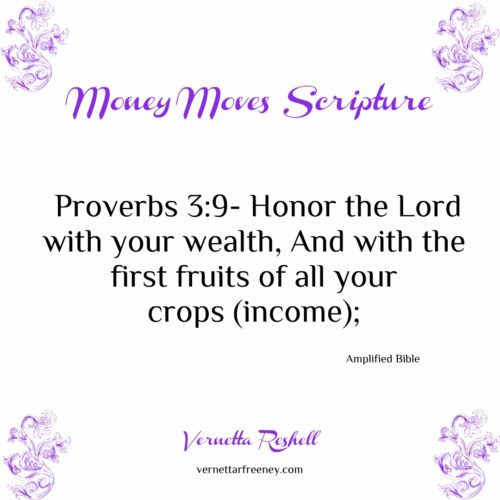To be a good steward in business we must understand some key terms. Over the past few years all I’ve seen online was the drive and desire for people to make 6 figures. There’s nothing wrong with that. I would love to personally so I can support more organizations that do great work in their communities. And leave a legacy for my nephews. Yet, the level of basic understanding when it comes to earning, making or keeping 6 figures seems to be lost. If we’re supposed to build great wealth to leave behind for future generations like the Bible tells us (Proverbs 13:22), then we need to understand the terms that applies.
Let’s start with, what is kingdom business? It’s a legal business that submits the way it’s lead, run, managed under God’s leadership. It may not specifically cater to Christians, but Christian values are applied throughout as well as it’s implicit in its internal message to employees, team and/or staff as well as external messaging to customers/clients, stakeholders, shareholders, vendors, etc. One of the most well-known kingdom type business is Chick Fil A. I may not be a fan because I don’t like their chicken, but their Christian principles and values are clearly defined, on display and received by their loyal customers. Tiphani Montgomery is well-known to have a kingdom business, but it does cater to Christian entrepreneurs. Everything she does is based on the Bible from posting on social media, the way she delivers her services and the types of events she hosts. Those are just two examples of what a kingdom business is.

Now we have that out of the way, let’s discuss some 6 figure terms that we need a clear and concise command of so we can immediately put the money where it belongs. (Hint: these are my definitions hopefully they are simple enough.)
- Sales= When a purchase is made, invoice paid or product/service is paid.
- Revenue= The money that actually came into your business bank account.
(Yes, there is a difference between sales and revenue. If you partnered with another business, then whatever y’all sold is split. You can say you made a $1m sale but your revenue from that sale may have only been $560,000. And the revenue is what you start to delegate money from into different categories. Which are described below.) - Taxes= What the government say you owe for the work you did. Meaning they get some of the money your company made and then also take it out from your personal income.
- Write-offs= these are things such as trips, meals, clothes (or anything specifically bought or paid for that is for your business and not just personal use) that you do when conducting business. So if you go to a conference or host a luncheon with someone or attend a meeting for dinner. If you are in fashion or media then your clothes, hair and/or make-up can be a write-off. If driving is part of your business therefore you can write-off the gas and mileage.
- Expenses= People you had to pay. Services used to operate your business. Products used for your business. Team salaries. Bills. Processing fees from your merchant accounts such as gumroad, shopify, paypal, stripe, cashapp, etc.
- Costs= Paying for the “ingredients” “raw materials” needed to make your product or service. Examples include hosting service if you do websites, flour for baking, oils for hair products.
- Debt= What your company owes others. Such as loans, vendors who allowed you to pay over time. Yes, that’s debt. Unpaid bills.
- Income= What you pay yourself. (You can also take a percentage from your profit as income but that’s going into more detail than what this post is doing.)
- Savings= What you put away for a rainy day, emergency or upcoming/future project.
- Profit= What you have after all the above has been paid out. This stays in your business account NOT your personal account.
Yes, this may seem basic to some but when you apply the terms to the money, it’ll help keep things in perspective.
So, your profit may or may not be 6 figures when it’s all said and done. But, don’t let that stop you from working towards that goal. Now you have a clear understanding that you’ll need more than $100,000 to actually clear 6 figures as pure profit for your business. Or to have a 6-figure income.
Now you can tithe off your gross (revenue), personal income or business profit. Just remember when you tithe who gave it to you to begin with. However, if tithing is new to you, find one and build up to being committed and consistent with how you give to your home church. There are promises attached to tithing and they don’t always include just making more money. Sometimes tithing can help loose some bondage on you and your bloodline. But getting into those promises are a whole ‘nother post. And something I’m currently learning more about.
If anything, I want you to walk away with a clear understanding that 6 figures is anywhere from $100,000-$999,999. And if you want to have a 6 figure business then all you need to make is $100,000. But if you want to clear 6 figures in profit or have that as your personal income then you’ll need to make a lot more than $100,000 after you place money in its respective category. I hope this blog post helped you have a clearer understanding of that.


Leave a Reply